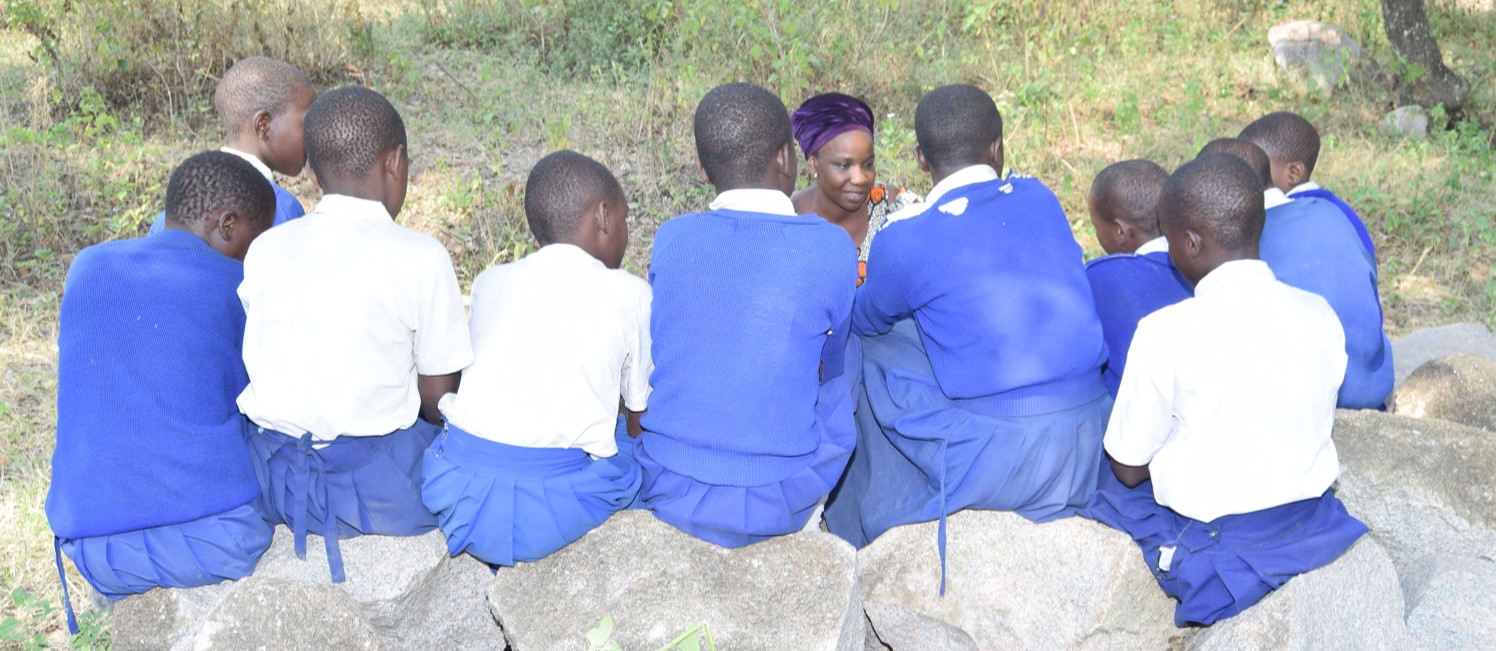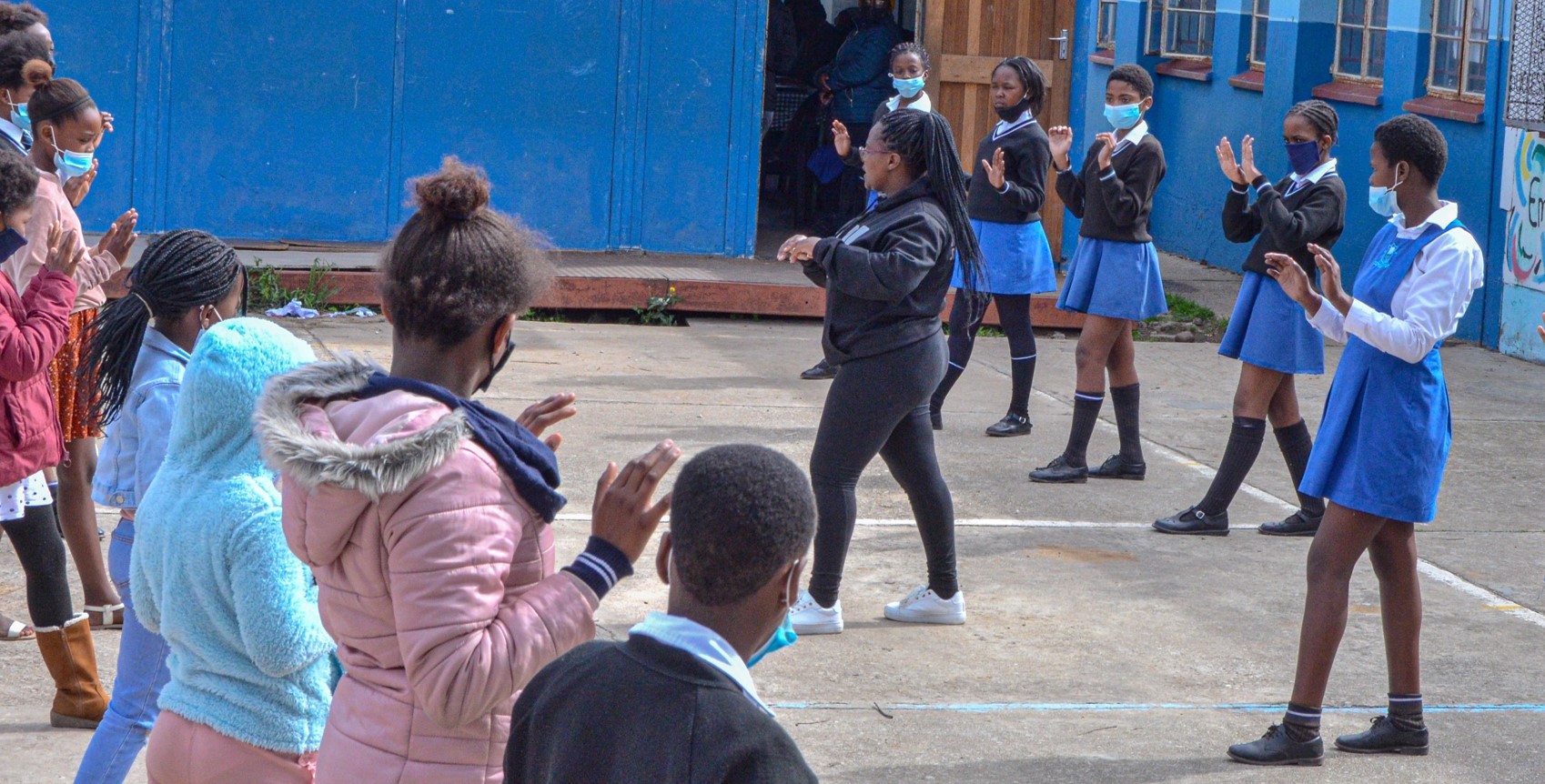
About the Together Women Rise Grants Program
The Together Women Rise Grants Program has two key components that support our overall mission to achieve global gender equality. Featured Grants are largely focused on delivering direct services by funding grassroots organizations that empower and support women and girls in low-income and marginalized communities in the Global South. Our Transformation Partnerships are designed to invest in areas where we can make the biggest impact on achieving global gender equality by addressing the root causes of gender inequality.
Featured Grants may include: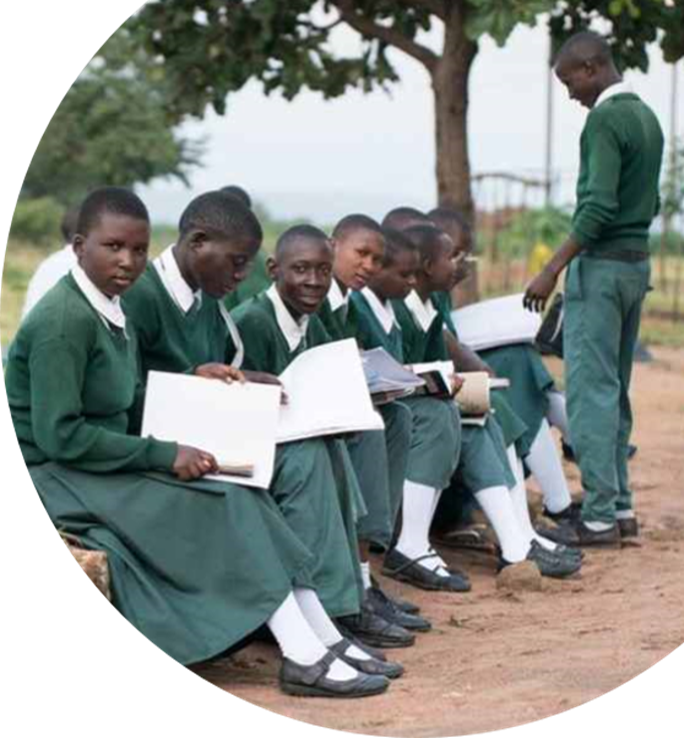
- Project/Program grantsfund a specific project or program with particular deliverables for a specific timeframe; or
- General Operations grantsto cover an organization’s day-to-day, ongoing expenses, such as salaries, utilities, office supplies, and more; or
- Capacity-building grants to strengthen an organization’s systems and thereby increase its effectiveness.
Through our Featured Grants Program, we highlight a different organization/project each month, providing a variety of learning materials on the issue and how the grant will be used. The following is information on the grants we are featuring for November 2024.
The Global Issue
Changing the Culture & the Future: Preventing Violence Against Girls
| “Violence against women is a global public health crisis of pandemic proportions. It has serious social and economic consequences for countries and societies.”
– The World Health Organization |
Violence against women and girls across the globe happens at a staggering rate. Intimate Partner Violence (IPV) includes psychological, sexual, and physical violence committed by a current or former intimate partner/husband. The statistics are alarming.
Consider:
- 30% of women have experienced intimate partner violence (IPV) or non-partner sexual violence. That is 736 million women around the world.
- The number of women and girls killed intentionally in 2022 – nearly 89,000 – is the highest yearly number recorded in the past 20 years.
- Adolescent girls are more at risk than adult women.
- More than 1 in 4 women (26%) ages 15 years or older have suffered violence at the hands of their partners at least once since the age of 15.
- 16% of adolescent girls and young women ages 15 to 24 have been subjected to IPV within the last year.
- An estimated 6% of women and girls ages 15 to 49 have been subject to sexual violence from a non-partner at least once in their lifetime.
While gender-based violence is a global issue, there are parts of the world where it is especially pronounced. IPV among teenage girls is most prevalent in Sub-Saharan Africa and South Asia: one in five teenagers there has experienced IPV in the last 12 months. Africa, with an estimated 20,000 victims, recorded the largest number of female intimate partner/family related killings in 2022.
The data is clear: gender-based violence is a pandemic. The challenge is to put the data into action. Gender equality is the start.
| In the United States, female intimate partner violence is on the rise, experienced by nearly a quarter of all women, and accounts for about half of women’s homicides. Over 35% of women in the US have experienced rape, physical violence, and/or stalking by an intimate partner in their lifetime. |
About Our Grantee
This month, Together Women Rise is funding two grants of $50,000 each: No Means No South Africa (general operations) and Project Zawadi (project/program).
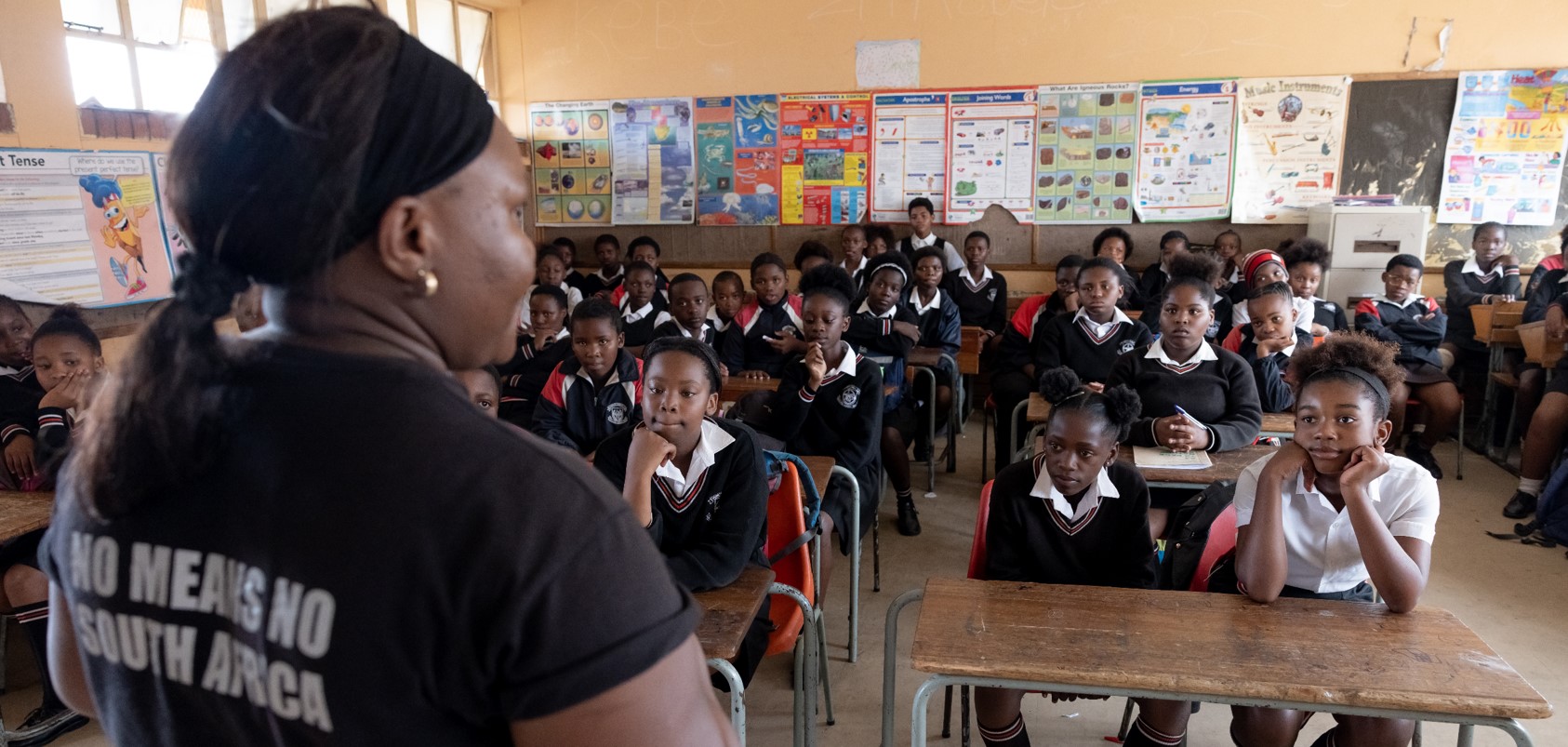
No Means No South Africa
No Means No is an international nonprofit on a mission to end sexual and gender-based violence against women and children globally. No Means No South Africa is the country-based hub for programming and research in South Africa.
No Means No South Africa (NMNSA) was founded in 2020 and became a registered entity in South Africa in July 2021. NMNSA delivers the evidence-based No Means No sexual violence prevention program to young people in Nelson Mandela Bay in the Eastern Cape of South Africa. The program teaches adolescents of all genders mental, verbal, and physical skills and strategies to avoid and escape from sexual assault and other forms of sexual violence, as well as skills to safely intervene when anticipating or witnessing violence. NMNSA provides help for young people who are survivors of sexual abuse to disclose safely and access aftercare support.
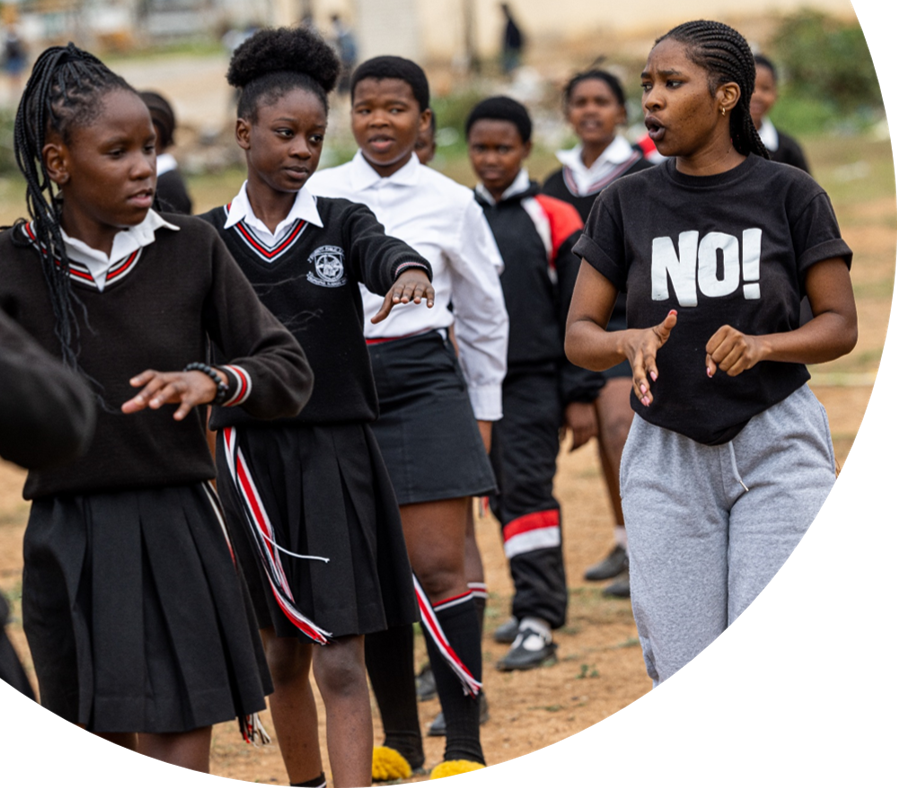 In addition to providing important sexual violence prevention programming and survivor support to young people in a region with exceptionally high rates of sexual violence, the NMNSA team is focused on innovation and management of longitudinal research that examines the long-term impact and cost-effectiveness of No Means No to inform ongoing improvements to the program.
In addition to providing important sexual violence prevention programming and survivor support to young people in a region with exceptionally high rates of sexual violence, the NMNSA team is focused on innovation and management of longitudinal research that examines the long-term impact and cost-effectiveness of No Means No to inform ongoing improvements to the program.
LEARN MORE ABOUT NO MEANS NO SOUTH AFRICA
Life Challenges of the Women Served
South Africa
South Africa has some of the highest rates of sexual violence in the entire world and the government has made firm commitments to addressing the problem.
| “There is a dark and heavy shadow across our land. Women and children are under siege. South Africa is one of the most unsafe places in the world to be a woman.”
– Cyril Ramaphosa, President of South Africa |
The Eastern Cape Province and the Nelson Mandela Bay metropolitan municipality have particularly high rates of sexual violence. This is where No Means No South Africa targets its efforts. Between April 2019 – March 2020 there were 8,708 sexual crimes in the province, while in 2013 the municipality had a rate of 242 sexual crimes per 100,000 people, which is twice the rate for all of South Africa.
Poverty is also a significant issue in South Africa, and the Eastern Cape is regarded as the poorest province in the country. The population of 51% female and 49% male is also plagued with some of the highest crime rates in the country and ranks top on gang-related violence, high prevalence of teenage pregnancy, and sexual and gender-based violence.
Girls become pregnant at high rates in South Africa. Gender inequality is a significant contributing factor to teenage pregnancy in the region. Where there is still a clear imbalance of power between genders, that can manifest in different ways in relationships. This power imbalance is embedded in societal institutions – for example, young girls and women are taught to be culturally obedient and to shy away from using modern contraceptives. Conversely, boys and men are taught the opposite, which often leads to an empowered male and an unempowered female.
The high prevalence of teenage pregnancy is at times tied to the practice of “ukuthwala.” Ukuthwala is a form of abduction that involves kidnapping a girl or a young woman by a man and his friends or peers with the intention of compelling the girl or young woman’s family to endorse marriage negotiations. These abductions are often with the consent of the girl’s parents. These “marriages by capture” occur mainly in rural parts of South Africa, in particular the Eastern Cape and KwaZulu-Natal.
How Our Grant Will Be Used
Together Women Rise’s $50,000 Featured Grant to No Means No South Africa funds the organization’s general operations, which includes the No Means No program.
Gender-based violence reporting in South Africa is generally very poor. First, the justice system is not always supportive of the victim/survivor and puts the burden to prove the crime squarely on the victim. Second, the mechanisms to report and get the necessary support and intervention are not always readily available for victims. But the No Means No program teaches young people how to identify all forms of assault and to realize that none of these behaviors are normal or acceptable. The program clearly defines sexual violence and equips young people with the language and skill to articulate and communicate if and/or when they have been violated.
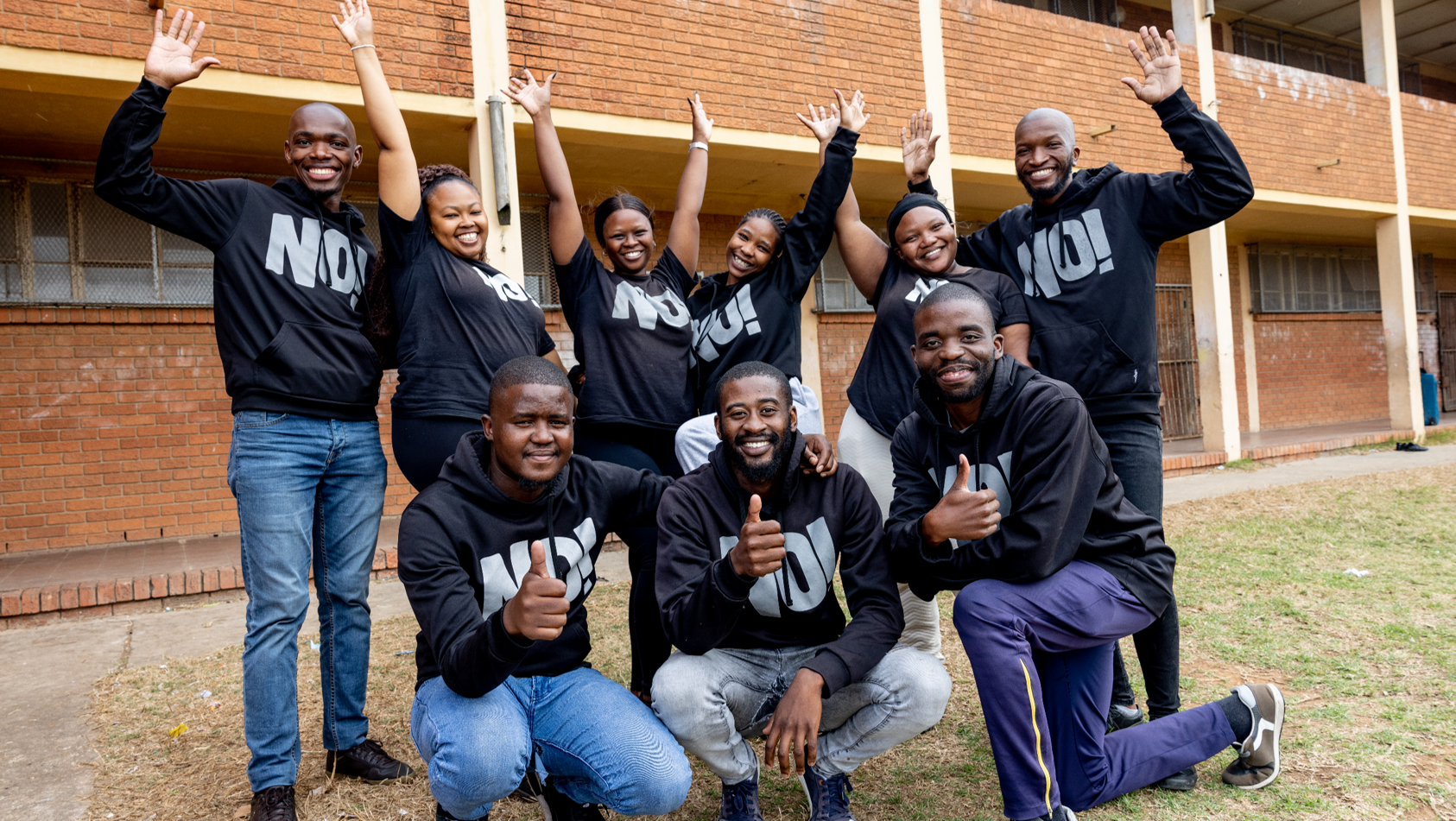
Many young people who participate in this program may have already experienced violence in their lives, therefore a critical component of the No Means No program is the Network Referral system. This system connects young people who have disclosed past or ongoing sexual violence with NMNSA social workers who not only offer psychosocial support but are also able to refer survivors of sexual violence to appropriate local services such as medical, legal, or shelter services. Being able to access the help that they need, finding personal agency, and being empowered with tools to safely defend themselves are lifelong skills that benefit the adolescents and their community. This program helps young people to tap into their powers and stay safe, and it includes self-defense and safety training for girls.
In addition, data drawn from research indicates that cyber-based sexual violence (also known as technology-facilitated sexual and gender-based violence), particularly through social media, is one of the highest forms of violence experienced by young people in the area. This grant from Together Women Rise will support development of a No Means No program module to equip young people to defend themselves against this form of violence. It will help NMNSA conduct research to understand how young people are exposed to online violence, what platforms they are using, and the types of violence they are experiencing, which will help in developing a module to teach safe ways of engaging with their peers through technology.
No Means No is evidence-based and has a proven impact on participants:
- 46% decrease in teen pregnancy related school dropouts among program participants
- 47% decrease in the overall incidence of rape among female participants
- 42% of female participants use No Means No skills to stop a sexual assault in the year following the training
- 79% of boys who witnessed physical or sexually assaultive behavior successfully intervened to stop it
Read more about the program here.
Budget
Since this is a general operations grant, there is not a specific project budget, but you can learn more about No Means No South Africa’s financials in its most recent annual report.
Why We Love This Project/Organization
We love this organization because a central theme of its work is that girls have the right to protect themselves. This effort struck a chord with us because it tackles such a severe problem. We liked that the program addresses altering the behaviors of men and boys – and recognizes that they are also a large part of the solution.
Impact Story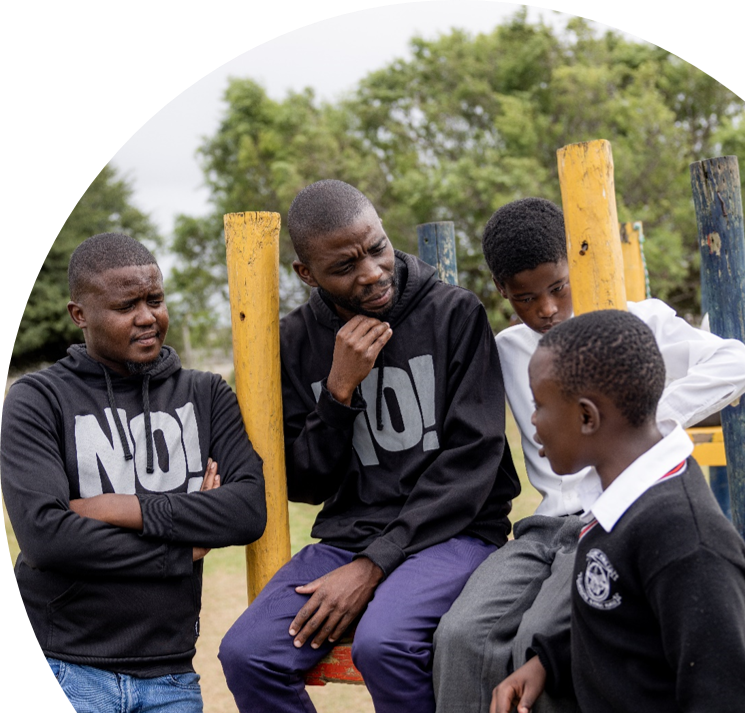
Meet Angela
Angela is 14 years old and from a township called Motherwell in Gqeberha, South Africa. Angela lost both parents and she and her brother are being raised by close relatives. Motherwell is the biggest township in Gqeberha, and its levels of crime and violence are increasing, especially at and around school areas. Angela met the NMNSA staff when they conducted Empowerment Self Defense classes at her school. Through participation in the program, Angela disclosed to the No Means No instructors that she was experiencing technology-facilitated sexual and gender-based violence – or cyber-violence – by some of the students at her school.
Understandably, Angela was traumatized and did not want to go to school. It was through interacting with the NMNSA staff that she realized that what was happening to her was sexual violence and that there are ways that she can defend herself and get help. Angela is currently receiving psychosocial support through NMNSA social workers. The No Means No program not only helped Angela, but it also helped her classmates recognize how they have violated Angela and gave them the opportunity to unlearn these harmful behaviors.
Project Zawadi
The mission of Project Zawadi is to ensure Tanzanian children and youth have access to a quality education.
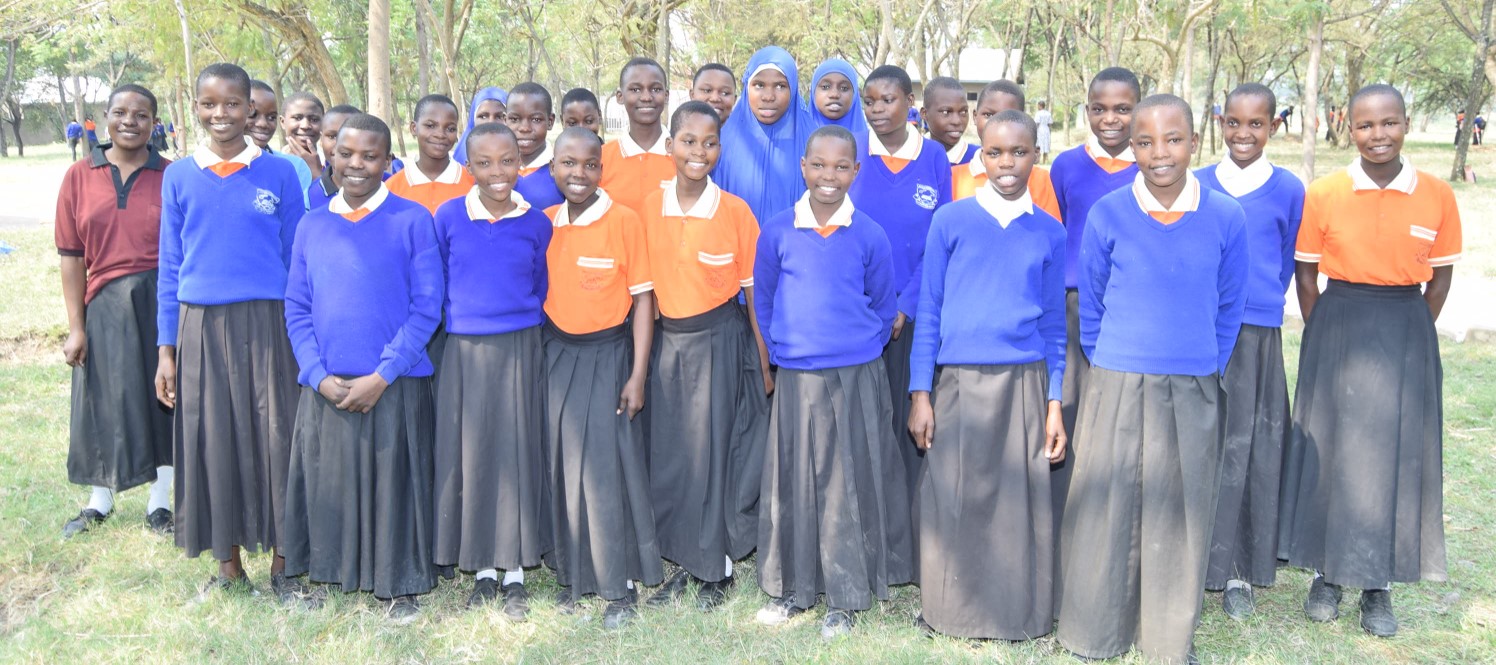
Project Zawadi has been serving vulnerable students in the Nyamuswa area in Mara Region, Tanzania for over 20 years. Its core programs include:
- Student Sponsorship: a program that ensures equitable access to education by providing school fees, uniforms, supplies, and mental health and academic counseling to vulnerable students
- Tenda Teachers: a comprehensive teacher professional development program that encourages evidence-based teaching and learning strategies, and
- Model Schools: a program that focuses on creating a positive and productive school environment by improving school infrastructure, delivering enrichment activities, reducing student hunger, enforcing safety, and providing school and community leadership development.
Project Zawadi has prioritized working with girls in all three programs since the programs began. In 2020, Project Zawadi began a concentrated effort focusing on safety in schools. This focus has helped ensure that girls are not physically or emotionally harmed.
LEARN MORE ABOUT PROJECT ZAWADI
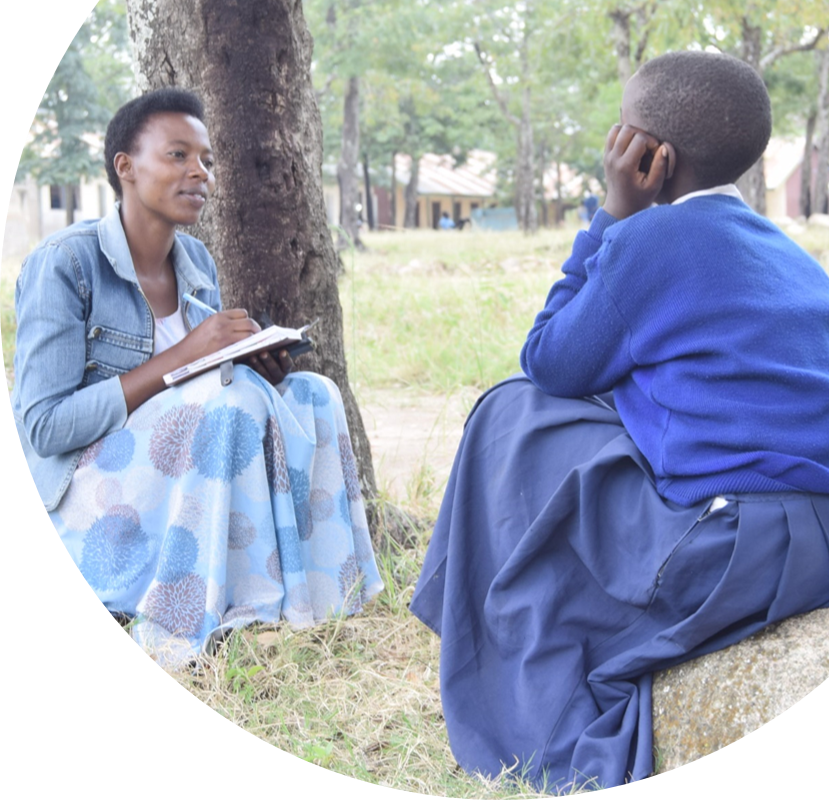 Life Challenges of the Women Served
Life Challenges of the Women Served
Tanzania
While improvements in gender equality have been made in Tanzania, social norms in the region make it harder for women to have the same freedoms, education, resources, and opportunities as men. As a result, women are among the most marginalized and underutilized citizens in the region. Girls in Tanzania are socialized to accept a cycle of violence and disempowerment. Little is being done by the government and non-governmental organizations to address gender-based violence, especially in rural areas. Few opportunities exist to support girls and help them recognize their worth.
Mara Region, where Project Zawadi works, is a remote area isolated and rarely served by non-governmental organizations. The majority of households depend on subsistence agriculture and fall below the poverty line. A UNICEF report (2018) on Mara Region documents how patriarchy and exaggerated masculinity impacts girls in the region. Females are taught to be submissive and obedient to men. This socialization coupled with heightened masculinity has contributed to excessive levels of gender-based violence. Mara Region has the highest rate of gender-based violence in Tanzania with half of girls ages 13 to 17 reporting some form of physical violence.
How Our Grant Will Be Used
Together Women Rise’s $50,000 Featured Grant funds the Girls’ Safety in School and Communities (GSSC) program.
This project aims to build Project Zawadi’s school safety effort by piloting an initiative that includes a specific emphasis on girls’ empowerment and a reduction in gender-based violence (GBV) not only in schools, but also in families and in communities. As such, GSSC will work with girls and key stakeholders including students, teachers, families, community members, school administration, village leaders, law enforcement officers, and local government officials to change knowledge of, attitudes toward, and responses to GBV.
GSSC’s primary participants are the 2,132 school-age girls at 16 schools in the Nyamuswa area in Mara Region. GSSC includes existing, expanded, and new initiatives. Empowerment clubs exist at four schools and will expand to 16 schools. Project Zawadi delivers teacher professional development focusing on teaching methods, but this will expand to training on GBV. One-on-one counseling sessions are currently provided to
sponsored students, but counseling will be expanded to include all students as needed. Project Zawadi works with local governments, but has not provided formal trainings until now.
Specific activities –
With students:
- Weekly empowerment clubs at 16 schools throughout the school year on topics like recognizing and reporting GBV in schools, families, and in communities, healthy relationships, boundaries, self-expression, entrepreneurship, life skills, and self-confidence. Empowerment clubs will be offered to 50 students at each school (25 girls and 25 boys) for a total of approximately 800 students.
- Creation of student councils at 16 schools. Members will learn what GBV is, how to mentor their peers, how to protect themselves, and how to identify students with problems at early stages. Students who do not feel comfortable approaching teachers with GBV issues can approach student council representatives. Work done by student councils has the potential to impact all students at 16 schools (approximately 11,000).
- Weekend entrepreneurial training for graduating standard seven and form four girls (ages 11-17) to teach budgeting and income generating activities. Poverty is associated with GBV. Developing entrepreneurial skills that increase income has the potential to reduce GBV. (Approximately 30 girls each year)
- Ongoing group and individual counseling for girls at 16 participating schools with professional female counselors. Counseling sessions will focus on psychological and emotional challenges girls face at school and at home. (Approximately 300 girls)
- Ongoing group and individual academic and career counseling for girls at 16 schools with professional female counselors. Approximately 500 girls)
With families and communities:
- Two workshops per year for families and community members at 16 participating schools on GBV prevention, GBV reporting policies and procedure, the importance of women and girls in schools and communities, and positive approaches to childrearing.
- Follow up as needed with families on GBV prevention. Parents will be included in counseling with students on an as needed basis.
- Distribute educational materials on GBV at central meeting locations in communities.
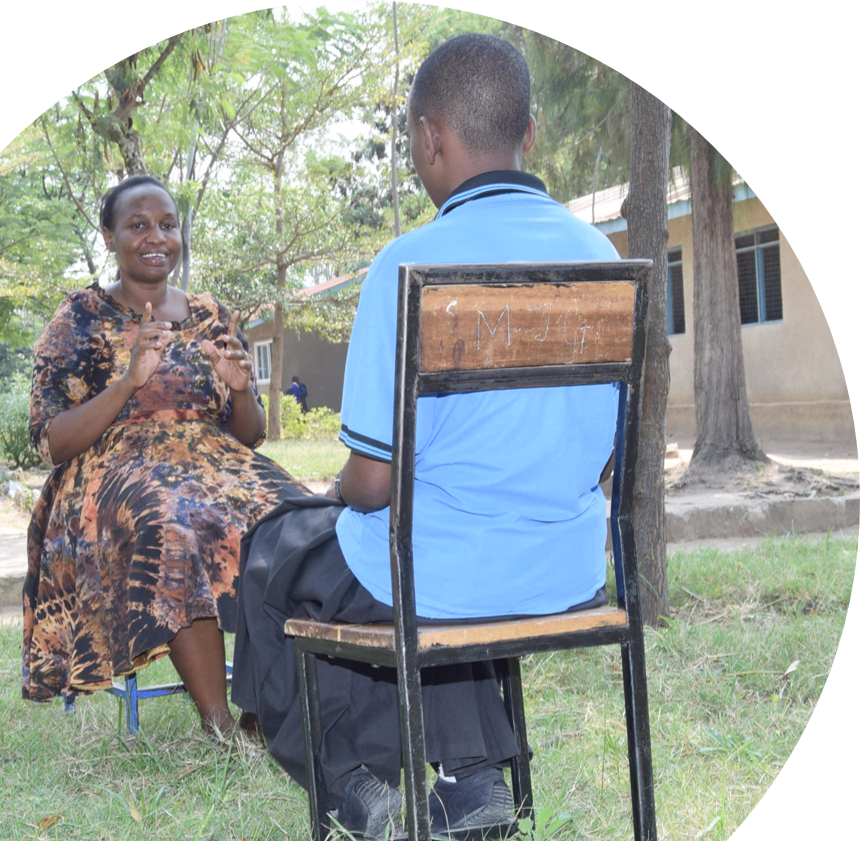 With teachers:
With teachers:
- Coordinate with teachers to incorporate awareness of gender-based violence into the existing puberty and sex education curriculum.
- Facilitate an annual in-depth training for appointed teachers and Head Teachers from 16 schools on GBV and trauma counseling, confidentiality, reporting policy and protocols, and community outreach and engagement.
- Distribute educational print materials and videos advocating for a call to action against GBV that will be shared with teachers and distributed in schools.
- Provide in-person follow-up by GSSC team with appointed teachers at all 16 schools throughout the year to address and process the gender-based violence cases that have been reported.
- Provide weekly phone texts with tips for counseling and reporting for appointed teachers.
With local government and law enforcement officers:
- Coordinate with them to review GBV reporting and referral procedures. While there are policies and procedures in place, many officials are not aware of them, have not understood them, and/or have not been provided training on how to use them.
- Include government officials and law enforcement officers in annual in-depth training for appointed teachers on GBV and trauma counseling, confidentiality, reporting policy and protocols, and community outreach and engagement.
- Invite government officials and law enforcement officers to GBV workshops and educational meetings with families and community members.
Direct Impact: 2,132+ school-age girls
Indirect Impact: 11,000+ students, plus parents, teachers, community members, government members, and law enforcement officers
Budget
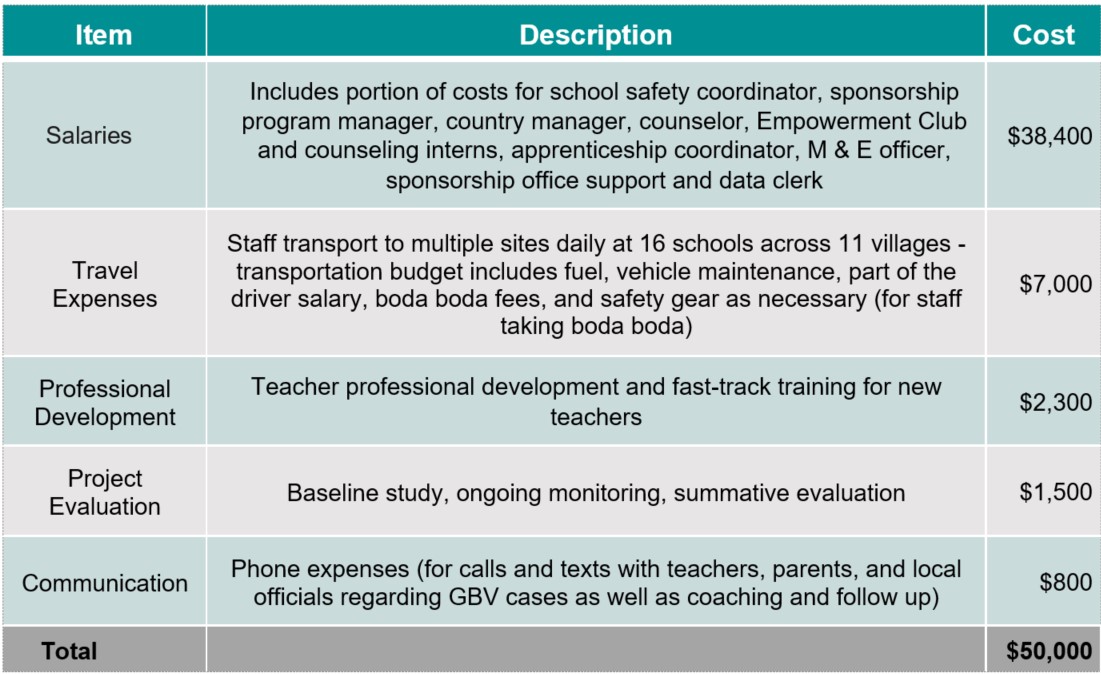
Why We Love This Project/Organization
We love this project because it is committed to a student-centered model that is addressing gender-based violence in schools, families, and communities. This project empowers girls to feel in control of their lives.
Impact Story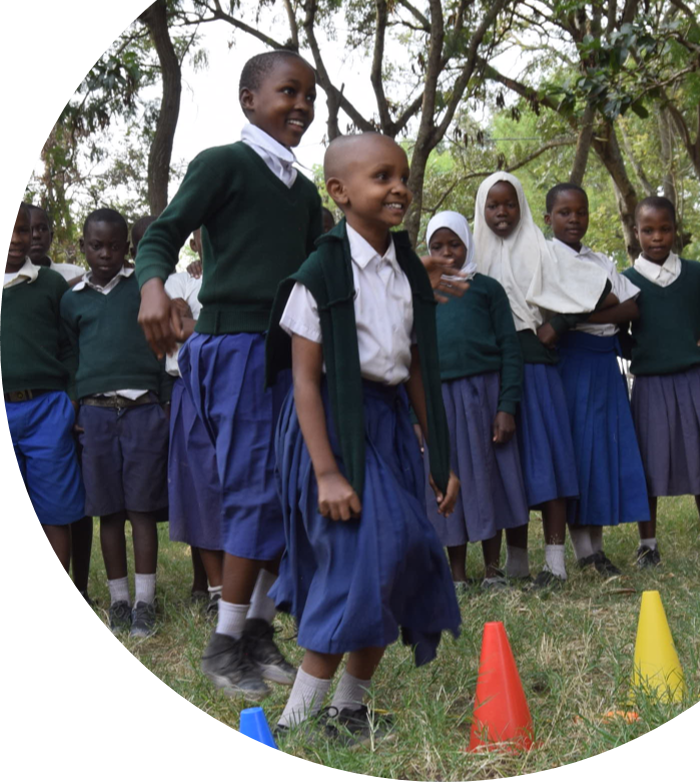
Meet Happiness*
Happiness is a standard four (school grade designation) student at Kitelewasi Primary School. While Project Zawadi had a presence at her school and worked with other students who were identified as having a great need, she had never received direct support from the organization. Happiness lives with her mother, uncle, and four siblings. They depend on their small family farm for their livelihood, and sometimes her mother sells bread at the school.
For an entire year, Happiness was a victim of rape and assault on a regular basis by an extended family member. The impacts were so great that she could not function in her day-to-day activities.
With Together Women Rise funding, as part of the GSSC program, Project Zawadi began facilitating Empowerment Clubs and a student council at the school. Happiness was not an Empowerment Club participant, but peers who were involved in the Empowerment Club and the student council identified her as someone who needed help. They provided peer-to-peer counseling and then got the GSSC team involved. The GSSC team supported her in reporting the case. Happiness’s case is now being evaluated at the district level. Critically, Happiness reports that she feels like her emotional needs have been met and she is now able to live her life as a typical kid.
*Note: The student’s name and the name of her school were changed for confidentiality. This story is being shared with permission.
Learn More
Country, Customs, & Cuisine
Proven Platter
Recipes
Source Materials
https://genderdata.worldbank.org/en/data-stories/overview-of-gender-based-violence
https://www.who.int/publications/i/item/9789240022256
https://www.nomeansnoworldwide.org/no-means-no-south-africa
https://www.saps.gov.za/services/april_to_march_2019_20_presentation.pdf
https://www.ecsecc.org/documentrepository/informationcentre/ECSECC_NMBM_SP_2014.pdf
Glossary
GBV: gender-based violence
GSSC: Girls Safety in Schools and Communities
IPV: intimate partner violence
NMNSA: No Means No South Africa
The Global South: The Global South includes the countries that experience higher levels of poverty, income inequality, lower life expectancy, and harsh living conditions compared to the wealthier nations in the “Global North” – located mostly in North America and Europe. The Global South primarily includes many of the countries in Africa, Latin America, the Caribbean, Asia and the Pacific, and the Middle East.
